Lessons Learned from webinar “Climate Change & Agriculture (VI)”
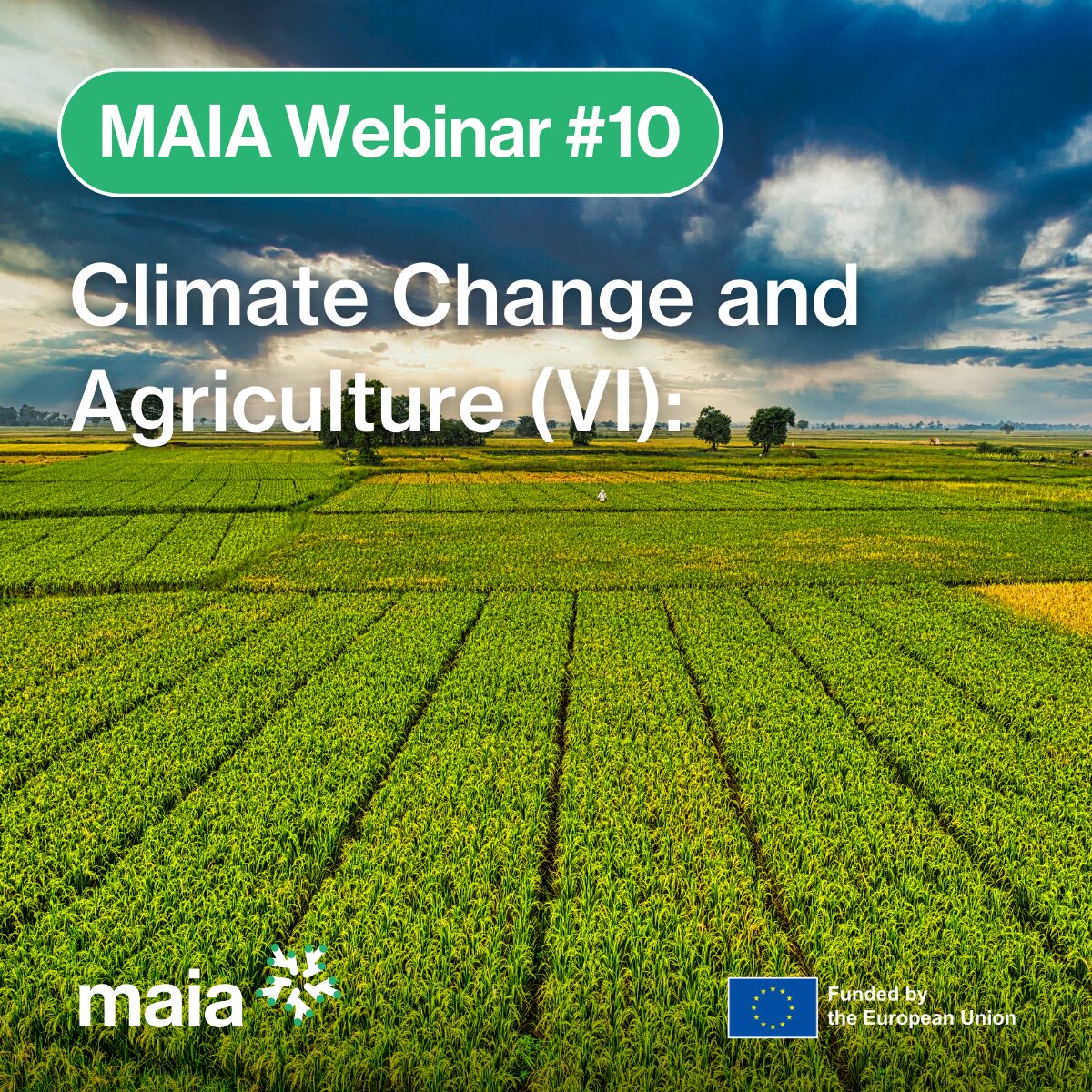
The MAIA Webinar “Climate Change Agriculture VI” took place on October 27, featuring representatives from the following projects:
Life AgriAdapt | Sustainable adaptation of typical EU farming systems to climate change (www.agriadapt.eu/)
Represented by Nicolas Métayer (Solagro), AgriAdapt has 4 partners across 4 European countries, representing different climate risk areas. It has worked at the farm level, involving 126 pilot farms. The project focused on the adaptation measures that maintain or improve the farm competitiveness, that address other environmental challenges and that enhance the farm resilience to climate change. Its main idea was to implement a common decision tool to organize qualitative and quantitative information, develop a diagnosis of climate vulnerabilities, and create climate predictions at the farm level to promote adaptation measures.
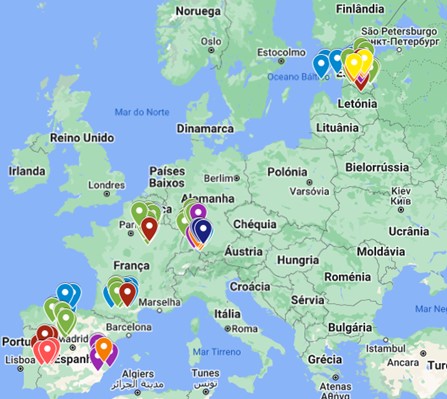
BEATLES | Behavioural Change Towards Climate-Smart Agriculture (www.beatles-project.eu )
Represented by Jasmina Bevc Bahar (ZPS), BEATLES is a Horizon Europe project that counts with 18 partners across 10 European countries. BEATLES aspires to change the way agri-food systems currently operate and accelerate the systemic and systematic behavioural shift to climate-smart agriculture and smart farming technologies fully aligned with the ambitions of the Farm to Fork and Biodiversity Strategies, and the new CAP at regional and EU levels. It seeks to encourage long-term and large-scale transitions to sustainable, productive, and climate-smart agri-food systems.
BEATLES has set up 5 Use Cases pilots comprising a good representation of EU regions (Lithuania, Germany, Spain, Denmark, Netherlands) and agricultural systems (wheat, dairy, fruits, pig sector, onions and table potatoes).
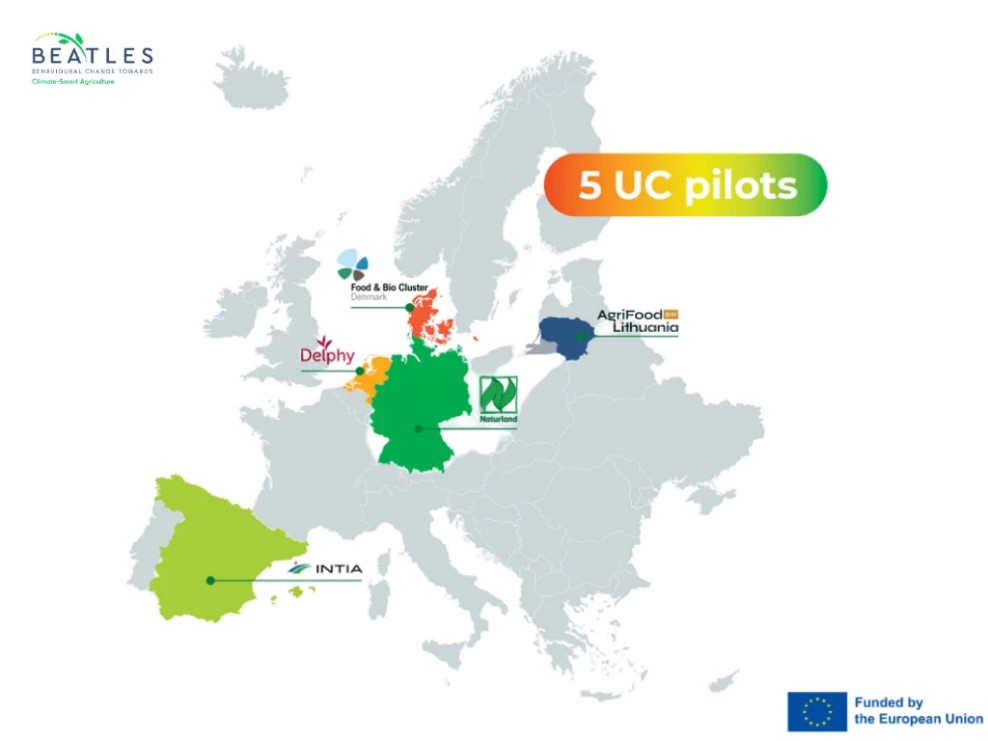
VISIONARY | Food provision through sustainable farming systems and value chains (www.visionary-project.eu )
Represented by Dionisio Ortiz Miranda (Universitat Politècnica de València), VISIONARY is a Horizon Europe project that has 13 partners across 8 European countries. The project aims to investigate Europe’s food systems, posing key questions: What is holding us back from transitioning towards more sustainable food systems? How can these lock-ins be overcome? What policy and business shifts are necessary to promote more sustainable agricultural practices?
VISIONARY is a network of scientists, NGOs, and practitioners spread across Europe who have come together to steer Europe’s food system toward a more sustainable future.

Case Studies:
Alternative distribution platforms for locally produced food
Domestic value chain for protein crops for food
Sustainable milk production in dairy cooperatives
The Local Gastronomic Points scheme (LGPs)
The transition to organic farming
The transition to water-friendly farming practices
Transition to more biodiversity-friendly food systems
Lessons Learned
- Different sociodemographic and psychological factors affect negatively farmers tradition to climate smart agriculture, such as older age, low education, low income, low farming experience, part-time occupation, low awareness, low skills and capacity, low innovativeness and low environmental conscience.
- Different systemic factors affect farmers’ transition to climate-smart agriculture, such as social norms, peer-to-peer learning, social networking, Membership in a cooperative, and Advisory services.
- BEATLES point out a series of recommendations for policies and strategies to foster the transition to smart agriculture, such as provide incentives and attract young people to work in agriculture, provide governmental financial support to disadvantaged farmers, among others.
- Different sociodemographic and psychological factors influence the consumer’s behavior towards environmentally friendly food products, such as gender, age, residence location, income, knowledge, resistance to change, etc.
- Product characteristics; eating and buying context, Systemic factors; and Policy factors also influence consumer’s behavior and affect their willingness to buy environmentally friendly food products.
- BEATLES pointed out a series of recommendations for policies and strategies to achieve consumer’s behavior shift towards environmentally friendly food products, such as Educate consumers about benefits, ensure availability and accessibility, stimulate demand trough marketing campaigns, offer tax incentives and government subsidies for producers, etc.
- VISIONARY highlights that despite the evidence, food actors (from farmers to consumers) continue to make inadequate decisions (choices, practices, relationships) due to a variety of factors. Thus, there is a need to better understand the factors that influence these decisions in order to design policies and private interventions to overcome barriers and lock-ins.
- The solutions to overcome the barriers to making better decisions involve improving the targeting of public and private behavioral interventions, adopting collective methods for the adoption of sustainable practices and innovations, and promoting food actors’ systemic thinking to better understand and navigate the systemic character of food, overcoming sectorial lock-ins.
- According to AgriAdapt, better information and the availability of reliable tools are valuable resources for decision-makers at different levels in climate change adaptation.
- Diversification, soil conservation, extensification of the farm practices and livestock buildings are issues that plays a key role in adaptation measures.
How you can get involved
Life AgriAdapt
Website: www.agriadapt.eu/
Webtool for adaptation: https://awa.agriadapt.eu/en/
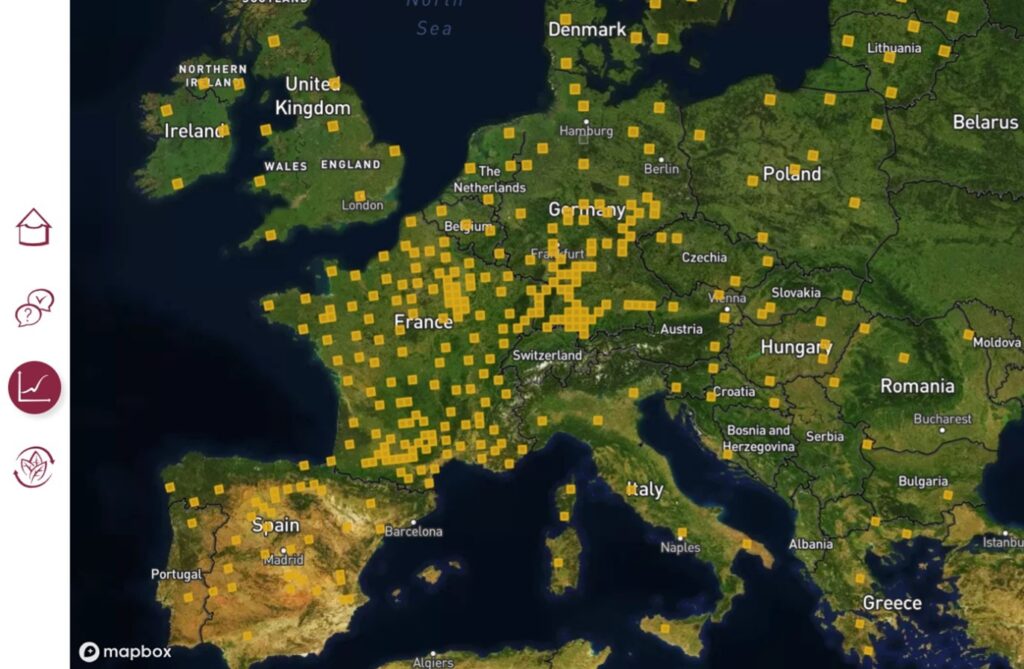
Copernicus – AgriAdapt Application: https://www.copernicus.eu/en/access-data/copernicus-services-catalogue/app-agriadapt-agroclimatic-explorer
BEATLES
https://www.facebook.com/BEATLES.project.EU
https://www.linkedin.com/company/beatles-project-eu/
https://twitter.com/BEATLES_EU
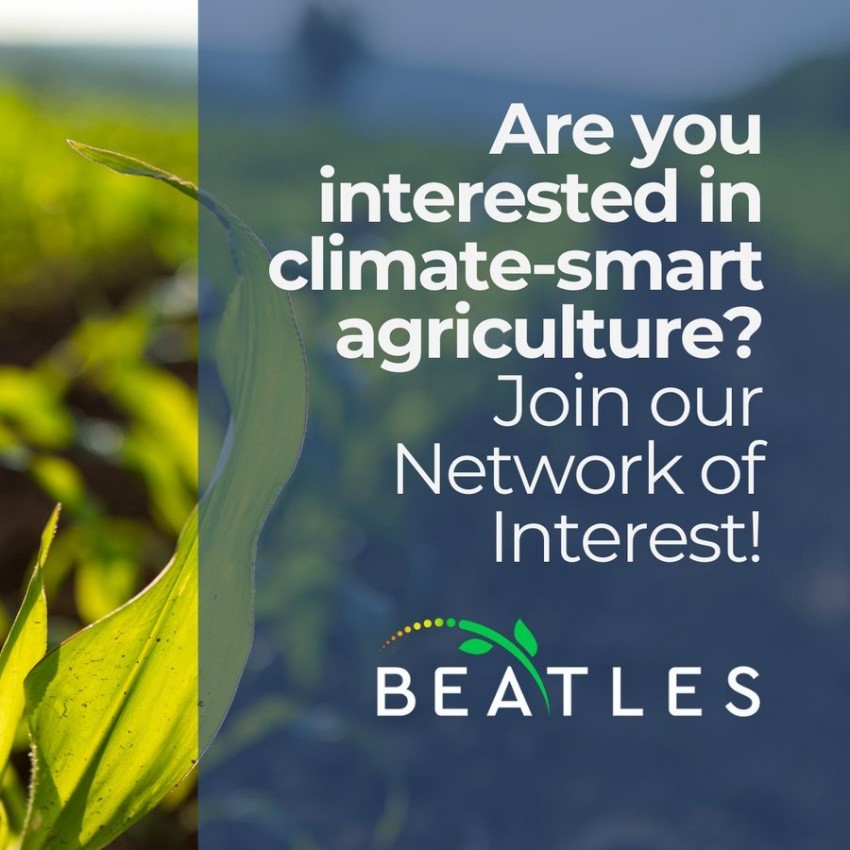
https://www.youtube.com/channel/UCQ2gq46UmYCpDmEDhhn924g
VISIONARY
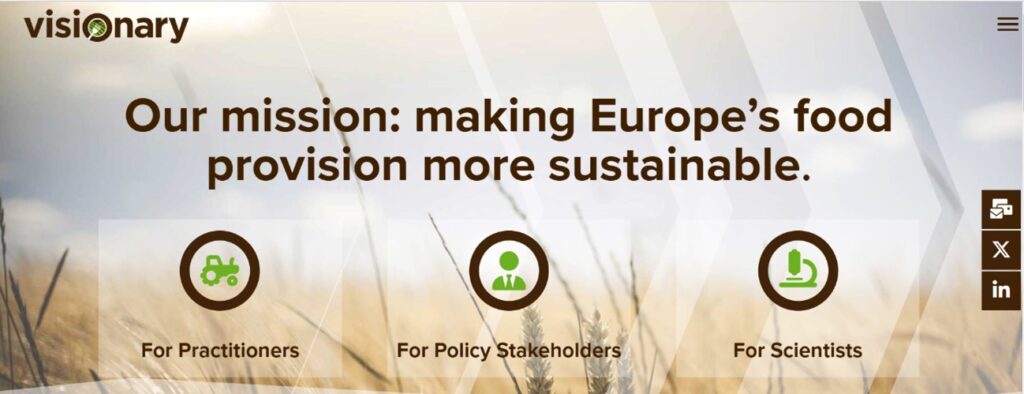
https://visionary-project.eu/newsletter/
https://twitter.com/visionary_eu
https://www.linkedin.com/company/visionary-project-eu/
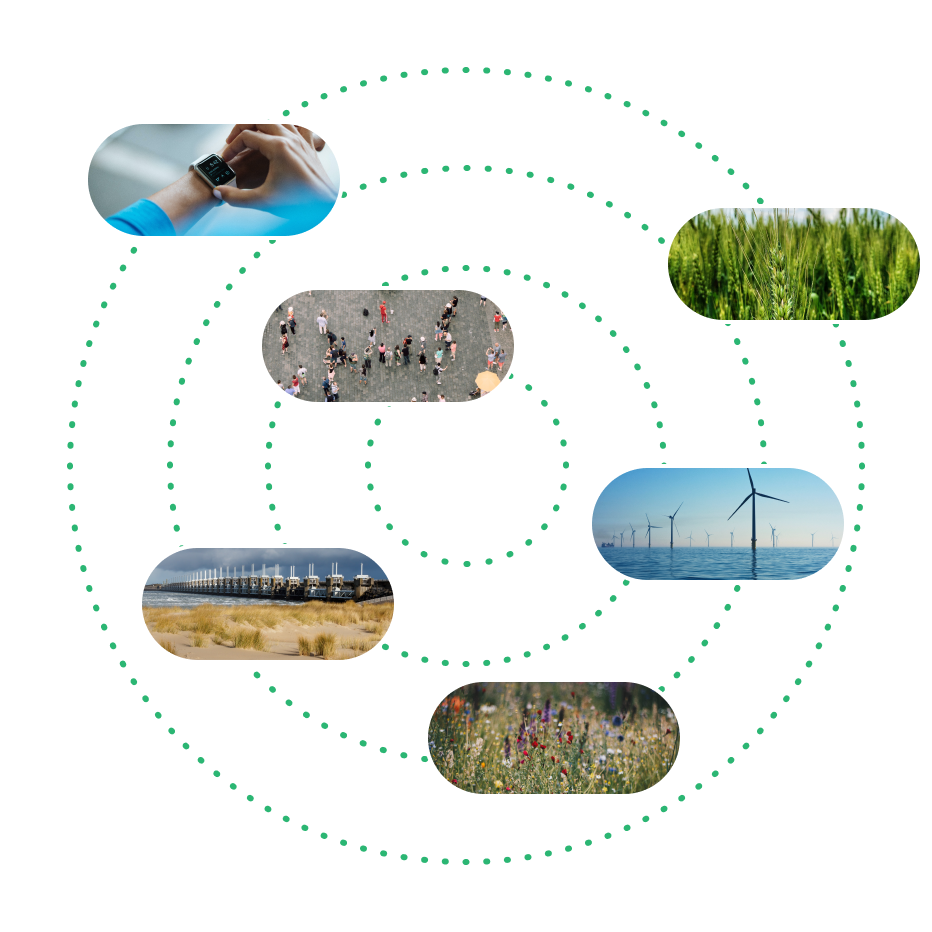
Comments
There is no content